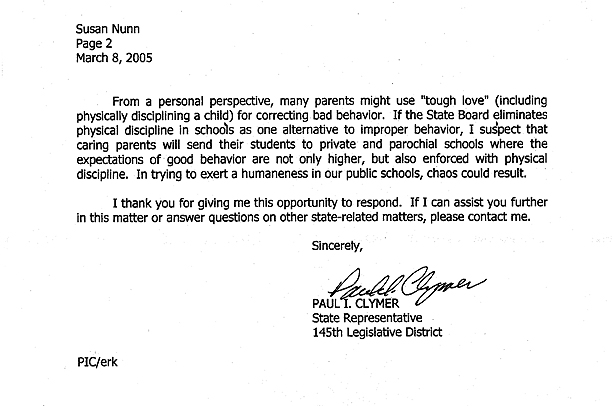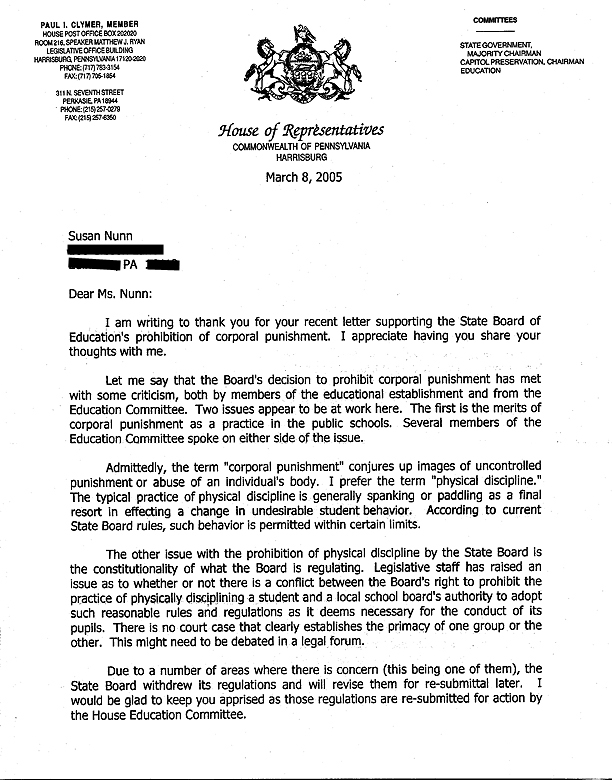Susan Nunn
Pennsylvania
February 17, 2005
House Education Committee
109A East Wing
Harrisburg, PA 17120-2020Honorable Rep. _______:
Please approve the State Board of Education's proposal to prohibit corporal punishment of children in Pennsylvania schools. "Corporal punishment" means, literally, "punishment of the body." We try to teach children to communicate with each other through words instead of blows. Why, then, is the state of Pennsylvania allowing school personnel to hit the body of a child?
In this state, it is illegal to strike prison inmates as punishment. A person can get arrested for animal abuse if he or she hits an animal with a board. Yet in some schools in this state, designated school staff hit children with boards.
I am currently a graduate student at Edinboro University of PA, formerly Edinboro Teacher's College. This university is known for its outstanding program of instruction in teaching and school administration. Where in the curriculum is instruction in spanking, if it is an important school discipline technique?
Where is the scientific literature providing the proper implements and positioning to spank a child? If spanking were considered a legitimate form of school discipline, these things would have been researched.
Where is the scientific literature proving the effectiveness of spanking on improving behavior? It does not exist. There are many studies demonstrating the harm of spanking and none showing long-term, positive behavior modification.
We want children to internalize notions of right and wrong. Spanking does not do that. It only teaches that if you want to avoid getting hit, do not get caught. Spanking generates strong negative emotions of fear and anger in the child, and does not allow the child to assimilate the actual lesson the adult is ostensibly trying to teach. Statistics show that, on average, the states in the US that still allow spanking in schools have higher dropout rates, lower academic achievement and more societal violence.
Sometimes the ideas of the past are not the best ones. The lessons for children in the twenty-first century should be lessons in reason and civility. Spanking children teaches them the opposite of those things.
Twenty-eight states in the United States have banned spanking in their schools. Please vote to add Pennsylvania to the list of enlightened states that do not sanction battery of children in the name of school discipline.
Sincerely,
Susan Nunn
Response from Representative Paul I. Clymer
Page 2

